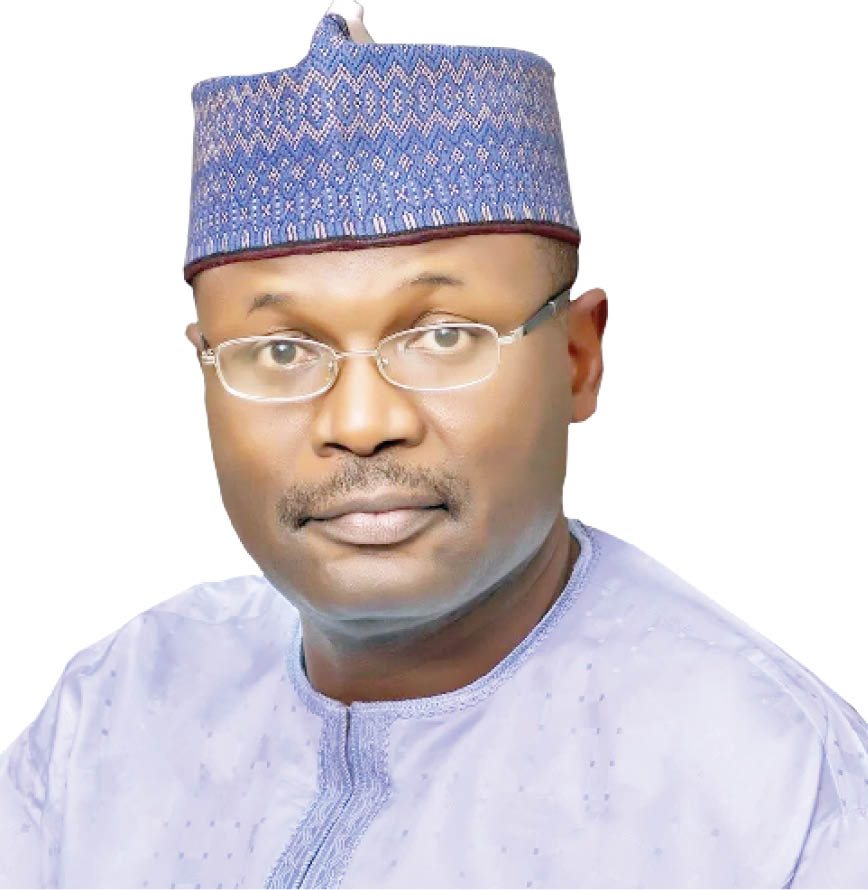INEC’s runaway expenditure
The Independent National Electoral Commission (INEC) last week presented a budget proposal of N305 billion for the conduct of the 2023 elections to the National Assembly. The presentation was made by INEC Chairman Professor Mahmood Yakubu to the Senate Appropriations Committee as part of the deliberations for the passage of the 2022 budget by the […]

Prof. Mahmood Yakubu, INEC chairman
The Independent National Electoral Commission (INEC) last week presented a budget proposal of N305 billion for the conduct of the 2023 elections to the National Assembly. The presentation was made by INEC Chairman Professor Mahmood Yakubu to the Senate Appropriations Committee as part of the deliberations for the passage of the 2022 budget by the National Assembly.
The INEC chairman noted that the N305 billion budget for the coming off-season and general elections was different from the N40 billion annual budget for the running of the commission. In his justification for the budget, the INEC chairman said the commission is saddled with conducting eight by-elections – three federal constituencies and five state constituencies.
According to the INEC chairman, “there are activities to be concluded. We will need to replace some of the critical facilities like ballot boxes and voting cubicles which must be done before the elections. Party primaries must be conducted and names of candidates submitted and registration of voters would have to be concluded before the elections. Printing of Permanent Voters Cards and some of the critical election technology must be concluded and procured before the elections.”
The INEC chairman further said N100 billion already released in addition to the N40 billion annual budget was hardly enough to cover these activities. He, therefore, urged the National Assembly to release the remaining N205 billion to enable the commission to carry out these tasks.
We are, however, deeply concerned with the runaway costs of elections in Nigeria. In 2015, INEC budgeted N108 billion to conduct the general elections which jumped to N189 billion for the 2019 elections. INEC also spent a total of N122.9 billion for the 2011 general elections. If all these sums are added to the N305 billion being demanded by INEC for the 2023 elections and the N40 billion annual statutory budget, it means that in 10 years, INEC would have spent a whopping N1.124 trillion on elections and running costs.
Moreover, if we consider that INEC also receives additional funding and other forms of technical assistance from international donors such as the European Union (EU) which has committed itself to supporting it till 2027, Nigerians are justified in questioning this humongous expenditure by the electoral body. There are several germane reasons for this scepticism.
First, all expenses have their opportunity costs, that is, the alternative things the same amounts could have provided. For Nigeria, these opportunity costs are huge. For example, the money INEC has gulped in the past 10 years is equivalent to the amount that the Academic Staff Union of Universities (ASUU) has said will revitalize all our federal and state universities to world-class institutions in the same period.
Also, if the federal government would increase the supply of grains worth just N305 billion (INEC’s latest budget request), it would significantly reduce the persistently high and rising price of food items and make food affordable for millions of Nigerian families who have had to battle against persistent food inflation. We are not suggesting simple equivalences, of course, but as a developing country, every naira spent by government must be considered against other equally pressing needs.
And beyond the opportunity costs, INEC’s expenditure must also be measured against electoral outcomes. It is true that the quality and legitimacy of our elections have improved dramatically in the same period under consideration, and that INEC itself has earned increased trust and confidence of Nigerians, as demonstrated in the recent debates around the electoral act. INEC today may in fact be the most improved public institution in Nigeria during the past decade.
Still, lingering issues remain. Perennial glitches in some of the technical equipment procured and deployed by INEC for the elections have left much to be desired. Also, despite all the huge monies purportedly spent on voter registration, education and mobilization by INEC, voter turnout in Nigerian elections have remained abysmally low in comparison to other African countries with far less budgetary expenditure for elections. A recent example in this regard is the Gambia where the voter turnout in the country’s election was 90 per cent on a budget that was nowhere near what has been spent in relative terms to ours.
Therefore, while we recognise the importance and primary role INEC plays as an electoral body in the democratic process, this should not be a carte blanche for uncontrolled expenditure by the commission. The commission must review its internal processes to cut areas of waste and duplication. INEC does not have to pay for resources from other government agencies utilized for elections. It must also exercise due diligence in its procurement to ensure equipment procured are cost-effective and technically durable. The government must also ensure a comprehensive review of INEC’s conduct of elections before approving any funding. We must control the runaway costs of elections.
